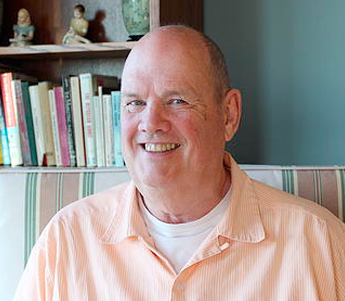Closeted Stories



Closeted Tweets
-
'''' 56 years ago
Gord McDiarmid
 In 1958, when Gord McDiarmid was in grade 11 at the University of Winnipeg Collegiate, he didn't understand why he would often experience feelings of depression.
In 1958, when Gord McDiarmid was in grade 11 at the University of Winnipeg Collegiate, he didn't understand why he would often experience feelings of depression."I used to go home many afternoons and I would literally just cry and have no idea why I was crying," says McDiarmid.
The 72 year-old looks back on his high school days in Winnipeg with mixed emotions.
"The Collegiate was wonderful from the point of view of people. Not from the point of my personal life or doing well in school."
Socially, McDiarmind enjoyed the company of a large circle of male and female friends who would hang out during school, and on the weekends at church youth groups.
"I had lots of friends but there was just something under my consciousness that would say you're alone, you're different."
McDiarmid had a difficult time characterizing what exactly it was that set him apart from his peers. Like his male friends, he enjoyed sports and flirting with girls, but by the time he reached high school he had discovered that not all of his interests were in line with those of the average 16 year-old boy.
"In grade 9, I began fooling around in homoerotic adolescent games-that's when guys flipped towels at each other's genitals and teased each other and stuff." McDiarmid says it was at this point that he knew he was gay-an understanding that wouldn't be fully realized until 30 years had passed, a marriage had ended and he'd raised three sons.
During the years that McDairmid attended the Collegiate, there were no resources for gay students. McDairmid didn't feel comfortable discussing his sexual orientation with anyone.
"There was no such thing as a high school councilor in the system," recalls McDairmid. "So what do you do, tell your mother?" I couldn't tell my mother."
"I'm surprised I didn't try suicide."
McDairmid flunked out of grade 12 twice before finally receiving his high school diploma in 1961.
"You could say that I didn't know how to study, you could say that I was a juvinille delinquent. But that's not true. The underlying reason for my inability to achieve [in high school] was my inability to resolve my sexuality issues."
McDairmid hopes that gay and lesbian students attending high school in 2014 don't suffer from the same mental health issues that he did.
"God sprinkled fairy dust on some not others-one of the most important things for me is that young people don't go through what I had to go through."
He thinks that parents need to take on more of a role when it comes to preventing homophobic bullying in high schools.
"It's the responsibility of mom and dad to teach sexual education. Parents need to cultivate the uniqueness and the diversity of the human species."